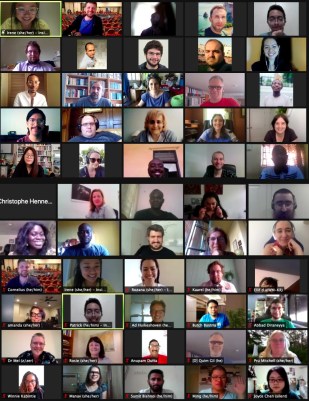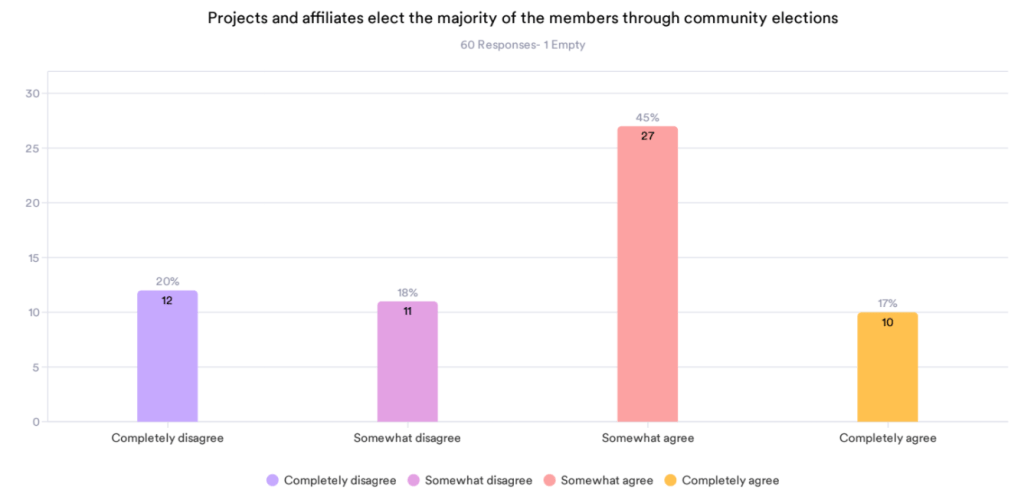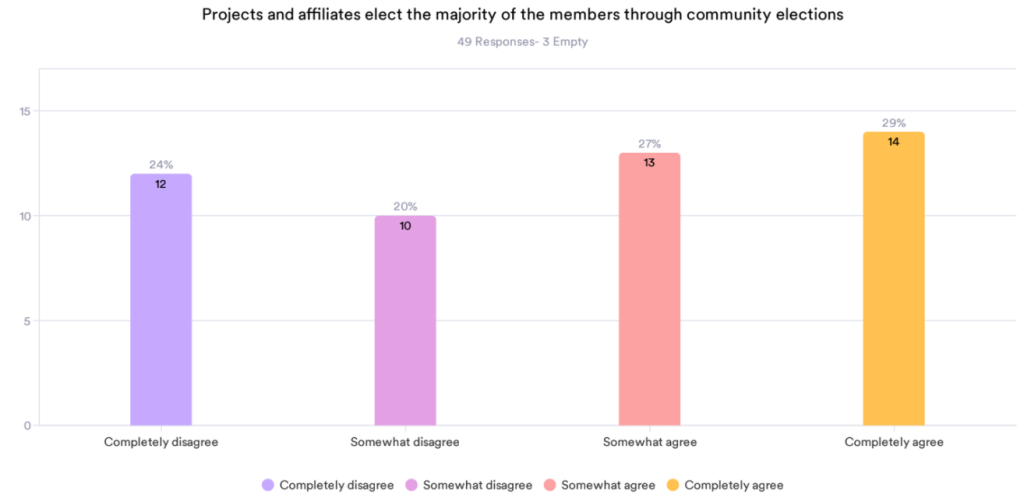While the Wikimedia Movement has grown to encompass more than three hundred language projects and about two hundred affiliates, there is still no single document that defines the roles and responsibilities of all these many communities and entities. This is the gap that the Movement Strategy recommendations aspire to fill with the Movement Charter, a declaration that would help to “establish a common framework for decision-making”. It is also the topic that one hundred Wikimedians came together to talk about on June 27th, aspiring to agree in an open conversation.

Creating a Movement Charter requires a drafting group with both expertise and diversity. The question is: How can we best achieve that? There was a proposed model for distributing the seats equally among eight regions. There was more enthusiasm towards allocating seats based on affiliation: either to “online communities”, affiliates or the Wikimedia Foundations. While allocating some seats according to regions or groups might help, most participants agreed that not all seats should be fixed or distributed evenly. It is important to be flexible with adding more seats or “topping off” in order to respond to the complexities of the movement, which cannot be simply represented by electing representatives.
Before the conversation, the Wikimedia Foundation shared a proposal for selecting members of the Charter’s drafting group. The proposal received several endorsements. There was also significant support for random selection, inspired by citizen assemblies, which may avoid bias and focus on representing the movement rather than individual communities. Regardless of the method, should there be a single selection process globally? A global selection process risks turning into a “popularity contest”, but it is difficult to decide on behalf of which “region” or “group” someone is nominated locally. Because this discussion has been going in loops for a while, there was a question about setting a deadline (tentatively, July 21st), after which a decision would be made by the Wikimedia Foundation regarding the selection process.


Before Wikimedians can nominate themselves for the Charter’s drafting group, they should be able to know how much work is being asked from them. There has been broad agreement that the average commitment should be about 5 hours/week, with the possibility of committing more for those who can. One question, though, was whether those members are required to be fluent in English. Although multilingualism can be challenging, it is a fact that most Wikimedians are not fluent English speakers and would be excluded from a monolingual conversation. Suggested mitigations include using: machine translation, live interpretation in-meetings and/or several committees in specific languages that work to include diverse perspectives.
Online conversations are continuing after the June 27th event, and the Movement Strategy team is striving to create alignment regarding final points of divergence. In this spirit, the proposal of Wikimedia Foundation has been amended. As the conversations continue and, hopefully, reach more agreement, the Movement Strategy team will move forward with setting up a multilingual call for candidates for the Charter’s Drafting Committee. We hope to be able to launch the process at the end of July with good levels of community support. For future updates, follow the Movement Strategy’s regular newsletter or Telegram channel.

Can you help us translate this article?
In order for this article to reach as many people as possible we would like your help. Can you translate this article to get the message out?
Start translation